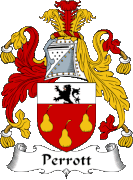I have the impression, rightly or wrongly, that many people, when researching their ancestors, tend to overlook checking whether or not any made Wills. Since most of us are descended from common folk the feeling seems to be, ‘they didn’t have much money so they wouldn’t have made a Will.’ This is an understandable, but often wrong, assumption. Quite a lot of relatively wealthy people failed to make Wills. Maybe they intended to make one some day but simply left it too late! A small, but significant minority of ‘ordinary’ people however did leave bequests. For the family historian, Wills throw a shaft of light on our ancestors, giving an insight into their wealth, possessions and way of life. In addition they often contain invaluable details of the members of the family, not least of which are the married surnames of the daughters of the family.
A Will (or as it is called in Scotland, a Testament) is the document which lays down the way in which a dead person’s money, property and effects are to be distributed. The person making the Will is the Testator; the person(s) carrying out his wishes are the Executor(s). If no Will can be found the person responsible for disposing of the estate can obtain Letters of Administration (‘Admon’) instead.
In the early days Church Courts dealt with Wills and the system was complicated. In 1858 the Probate Division of the High Court took over responsibility for proving wills. Indexes have been printed which can be very informative in their own right – particularly for the 19th century. The indexes are available in the district probate offices and some records offices.
Because of the changes made to the system, Wills made in the last 159 years or so and given ‘Probate’ (ie registered as legal after the subject’s death) are easy to trace and read. Since 1858 the rules relating to the executing of Wills have been fairly straightforward and all the Wills for England and Wales are available to view or copies can be bought. Anyone can buy any Will – you don’t have to be a relation. They are available at the Principal Registry of the Family Division, First Avenue House, 42-49 High Holborn, London WC1V 6NP. Tel: 020 7947 6980, web site www.courtservice.gov.uk/cms/wills.htm. The Postal Searches and Copies Department for Wills since 1858 has a different address: The Probate Registry, Castle Chambers, Clifford Street, York YO1 9RG, tel: 01904 666777.
Prior to 1858 Wills were proved in church courts and to the modern mind the system was very complex. Nevertheless many thousands of these old Wills have been preserved and make fascinating reading. They are not, however all held in one place so it may take just a little detective work to locate them. We have always maintained that family history research is a good hobby for anyone who likes to think of him/herself as a Sherlock Holmes or a Miss Marple!
If the deceased had personal property in only one archdeaconry the Will could be proved in the archdeacon’s court. If the personal property was in more than on archdeaconry, but in only one diocese, the Will could be proved in the Bishop’s. Court.. If more than one diocese was involved but only one ecclesiastical province the Will would be proves in the Prerogative Court of Canterbury (PCC) or the Prerogative Court of York. If both Canterbury and York were involved it would have to be proved in both. However the status of the PCC was such that many people had the will proved there – even if it could have been proved in a lower court. Sounds complicated – but there is more to come!
There were other church courts – called Peculiars – and a map showing which court operated where frequently makes little sense in terms of modern county boundaries. The PCC Wills are held by the National Archives at Kew and over a million are indexed and can be ordered online. In addition microfilms and indexes are available at the Family Records Centre in Myddleton Street, Islington, London. The indexes of many of the church courts have been indexed and many are available in specialist centres -such as the Society of Genealogists Library. Many of the wills have been redistributed to the county records offices.
Prior to about 1750 it was usual for the Will to be accompanied by an Inventory which recorded the property of the deceased. This inventory typically included the deceased’s tools of trade – including livestock and planted crops on the farm in some cases. The household goods will also be listed – usually room by room -so one can learn something about the size of the house and how it was furnished.
If you are looking for a P*RR*TT Will and haven’t had any luck yet, don’t forget the Society has copies of a great many of them and may be able to help you. Just ask! If you want to locate a Will made before 1858 and haven’t been able to find out where it is, there are specialist paperback books explaining in which Record Office the Wills for a particular church court are to be found.
